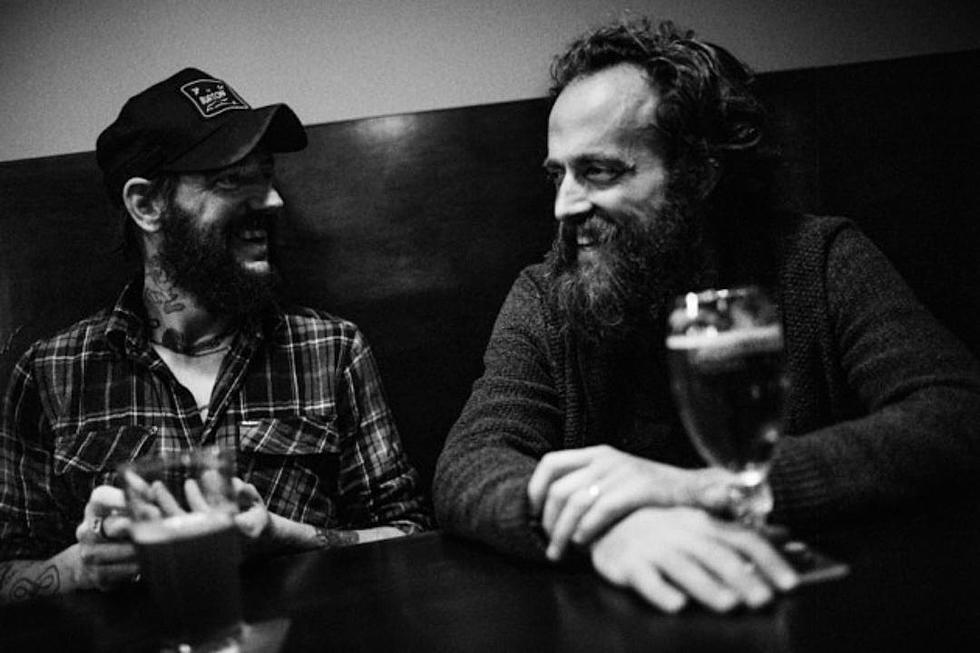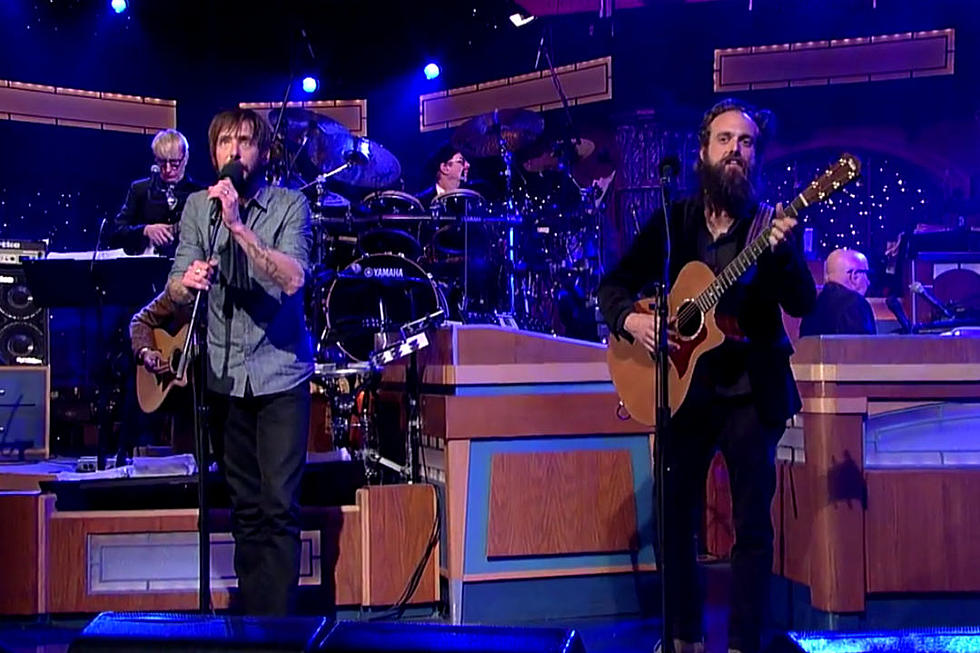
10 Years Ago: Band of Horses Debut With the Strange and Beautiful ‘Everything All the Time’
In 2006, Band of Horses made an album that probably wouldn’t fly in 2016. Everything All the the Time is notable for its compactness, and its perfect pop melodrama. Released a decade ago today (March 21), it takes the band’ quirks – like Ben Bridwell’s distinct voice and the way syllables mutate in his mouth and the way the huge pop hooks sometimes tangle with the songs’ rhythms – and edits them into an exceptionally digestible product. It’s not an album packed with 10 million ideas, it doesn’t have a trailblazing concept and there’s little about it that feels like a contender for album of the year. But looking back on it with the benefit of time reminds us that it positively glistens in its succinctness, while offering enough distinctiveness to make it interesting upon indefinite listens.
Bridwell cut his teeth in the post-grunge Seattle "chamber rock" band Carissa's Wierd – a band that played pop melodies (gorgeous ones), but embedded within the songs like quivering masses, always on the edge of breaking down and and always at least as slow as a dirge. The band seemed to revel in the process of taking something satisfying and stretching it until it was strange and sallow; they wrung their own melodies for every drop of blood. Young Bridwell played drums for the band and released their early material on his Brown label.
In 2004, when Carissa's Wierd seemed on the verge of indie success, they broke up and Bridwell formed Band of Horses with help from Carissa's Weird singer-guitarist Mat Brooke. This time around, they went for flavor, letting the melodies shine and creating big, emotional climaxes. They played the songs that would constitute Everything All the Time at shows around Seattle opening for Iron & Wine and, before they knew it, they had a deal with Sub Pop.
The year 2006 represents an age of earnest indie when everyone wanted to be sung to softly and sincerely. It was the era of Bon Iver, Fleet Foxes and My Morning Jacket, and Everything All the Time fit neatly into the milieu. It isn't hard to see why Band of Horses found an audience so quickly. But Everything All the Time is an album that feels driven by the band’s heart – it's an album overflowing with sincerity and emotion at risk of any kind of detached mystique. It’s more Electric Light Orchestra than Neil Young, more 10cc than Flaming Lips. The choruses are big and sweet, and almost every one is painfully wistful.
Lead single “The Funeral" feels like it was made for that scene at the end of a movie where all the buildings explode (and it was appropriated for a Ford commercial, which earned the band no small amount of indie finger-wagging.) What’s our big takeaway from these songs? It's that we all feel desolate at times – in fact, we feel a little desolate all the time, and sometimes it even feels right to wallow in our desolation. Band of Horses provided a soundtrack for that.
But within this concise record resides a whole breadth of weirdness. Like the gnarled and surreal trees on its cover, it's both earthen and unearthly. “Our Swords,” for instance, is an odd, jittery piece. It goes down smooth, with a pretty melody that mostly follows the chords. It doesn’t feel out of place on the album, but it does provide a contrast to more conventional tunes like “Weed Party” – and not just in its rumbling groove, but in the words, too. Bridwell sings, “A chilling walk home / down the portions / Roads there leading straight to your place.” It isn’t a line anyone else would write, though it still strikes a chord about a solemn walk home. The lyrics speak a language so simple they can't totally make sense to anyone but Bridwell, but, perhaps paradoxically, their total directness can be exceptionally moving.
“Wicked Gil” is similar, with an off-beat bounce and lyrics about "evil people who say things." Neither tune sells out the album’s pop heart, but they certainly couldn’t belong to any other band either. These moments are the key to the album’s power to reel me in over and over again. These are songs with deeper ridges than most, and the more I hear them, the more I find I can settle into them comfortably.
The real heart and soul of the record, though, are songs like “The Great Salt Lake” – the songs that feel designed for big cinematic moments. With all the imagery of campfires and watering holes, "The Great Salt Lake" revolves around the one phrase Bridwell says clearly in the song: “If you find yourself falling apart.” It feels like a grace falling apart over a stunning background, both the one Bridwell sings about and the one the band churn up.
There’s plenty more here to soak your mind in while wandering home from a bar in a drizzling rain. “Part One” is about waking up in a sun-drenched bedroom with someone you can’t believe would be willing to wake up next to you, yet it feels a little like Bridwell is addressing a dream or a memory. “I love you always, even when I say you distract me,” Bridwell sings like the gentle acknowledgement of some catastrophic undoing. It is sentimental, but it lands, and it does so in a way you’d watch over and over again.
Everything All the Time was a critical success and it reached No. 25 on Billboard's Heatseekers chart, but the lineup that created it only remained together briefly. Brooke (who said he was never really an official member) left the band prior to the release of the album and formed Grand Archives and by the time Band of Horses played "Funeral" on the Late Show with David Letterman, bassist Chris Early and drummer Tim Meinig had departed.
While the band's lineup would swell to a six-piece for 2007's Cease to Begin, it's clear that Band of Horses is truly Bridwell's vehicle. They since released two more albums (2010's Infinite Arms and 2012's Mirage Rock), but much of their later output has jettisoned the immediacy and weirdness of Everything All the Time in favor of beer-commercial sentimentality. But we'll always this snapshot of Band of Horses at their hungriest and their purest.
20 Albums You Won't Believe Turn 20 in 2016
More From Diffuser.fm









